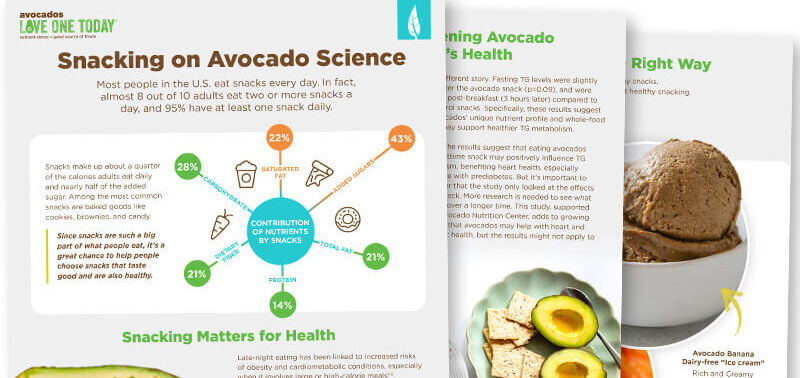Study Overview
Published: Food & Function
Category: Cardiovascular Health, Type 2 Diabetes
View Published Study
Download PDF

Objectives:
To assess evening snack macronutrient composition and whole food (avocado) matrix on morning metabolic indices in adults with prediabetes.
Methods:
Participants (n=55, 44±14 years, 28±6 kg/m2) were randomized to one of three energy-matched (280 kcal) snack interventions in a crossover design: Control (low-fat, low-fiber); Avocado, whole (high-fat, high-fiber); Matrix control (high-fat, high-fiber combined ingredients). Snacks were consumed on three separate evenings at the same time (±1 h), followed by 12 h fast and blood collections before and after (3 h) a standard breakfast (720 kcal). Data were analyzed by repeated measures analysis of variance using the mixed procedure, SAS 9.4.
Results:
Fasting and postprandial glycemic and inflammatory markers were not different after snack interventions (p>0.05). After the avocado snack, fasting triglycerides tended to be lower (p=0.09), and a snack-by-time interaction (p=0.02) revealed significantly lower triglyceride concentrations at 3 h.
Conclusions:
Snacking on avocados in the evening may have important effects on triglyceride metabolism.
Clinicaltrials.gov # NCT05263011






